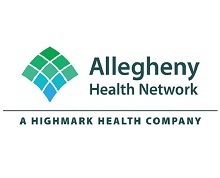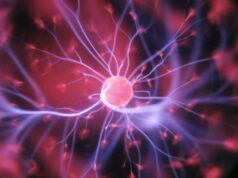 A team of physicians at Allegheny Health Network (AHN) in Pittsburgh, USA has received US Food and Drug Administration (FDA) approval to begin the second phase of a “groundbreaking” clinical trial exploring the efficacy of deep brain stimulation (DBS) in the management of morbid obesity, a press release states. Leading the study is Donald Whiting (Allegheny General Hospital, Pittsburgh, USA), chair of AHN’s Neurosciences Institute, chief medical officer for AHN, and a pioneer in using DBS as a treatment for various debilitating neurological conditions.
A team of physicians at Allegheny Health Network (AHN) in Pittsburgh, USA has received US Food and Drug Administration (FDA) approval to begin the second phase of a “groundbreaking” clinical trial exploring the efficacy of deep brain stimulation (DBS) in the management of morbid obesity, a press release states. Leading the study is Donald Whiting (Allegheny General Hospital, Pittsburgh, USA), chair of AHN’s Neurosciences Institute, chief medical officer for AHN, and a pioneer in using DBS as a treatment for various debilitating neurological conditions.
The study will enrol six male and female patients aged 22 to 65 years, who have a body mass index (BMI) of higher than 50, and are at significant risk of morbidity and mortality due to obesity. They will also have undergone gastrointestinal bypass surgery without achieving sustainable results. The broad goals of the study will be to measure the safety and efficacy of DBS in increasing an individual’s metabolic rate.
“For those who have struggled with weight management throughout their lives, and face life-threatening issues associated with obesity, the more options we can provide to help them regain their health the better,” said Whiting. “We have a long way to go in establishing DBS as one of those options, but we are very excited to be taking the next important step in assessing its potential.”
DBS involves the use of electrodes and a neurostimulator device to deliver mild electrical stimulation that modulates the lateral hypothalamus (LHA) of the brain—which regulates the balance between food intake and energy output, metabolism, lipid homeostasis and sugar levels, all of which work together to determine a person’s weight setpoint. Obesity is a chronic condition involving an imbalance of food intake and energy expenditure caused by higher reward signals in the brain from palatable, densely caloric foods, triggering an addictive response.
“This exaggerated cycle of hunger, satiation and reward opens the door to overeating patterns that manifest as a food addiction, or food abuse that leads to obesity,” said Whiting. “By targeting the lateral hypothalamus with DBS, we are modulating physiological and behavioural aspects of food consumption, with the goal of changing weight setpoints and better regulating energy balance.”
Under Whiting’s direction, three patients participated in a 2013 feasibility trial of DBS for obesity. Although not all of them succeeded in moving the needle on the scale, each experienced a decreased urge to eat and, most importantly, none experienced negative side-effects from the treatment, according to the AHN release.
“We have known from our use of DBS for almost two decades to treat movement disorders such as Parkinson’s and essential tremor that the procedure is a safe and generally well-tolerated therapy,” said Whiting. “Although our initial obesity study was a small sample, we were encouraged by the results overall, and particularly for one of the participants who experienced and has maintained considerable weight loss.”
While the goals of the current trial will be an extension of the first—namely, studying the procedure for safety and measuring its efficacy in increasing an individual’s metabolic rate—several modifications will be integrated into the process. For one, a new generation of DBS technology will be used that features major advancements over its predecessor. Additionally, lessons learned from the preliminary work include insight into the level of DBS energy output required to affect weight loss, so the DBS setting will be programmed to a higher level to achieve the optimal metabolic rate necessary to boost energy expenditure. As in the first trial, Whiting will be joined by fellow AHN neurosurgeon and DBS specialist Nestor Tomycz (Pittsburgh, USA).
George Eid, chair of the AHN Bariatric and Metabolic Institute and co-investigator for the trial (Pittsburgh, USA), suggests that the failure of gastric bypass to manage obesity may be a direct result of a lack of attention to the underlying neurophysiologic basis of the disease. “Feeding behaviour involves a delicate interplay between a body’s need for food and the reward system that can powerfully motivate excessive eating in some individuals,” he said. “In some individuals, neural networks will fire after eating at a level comparable to that of a heroin addict.”
Whiting added that this AHN study may also serve as a framework for future research on other health issues that involve some of the same neural pathways, such as drug and alcohol addiction.









